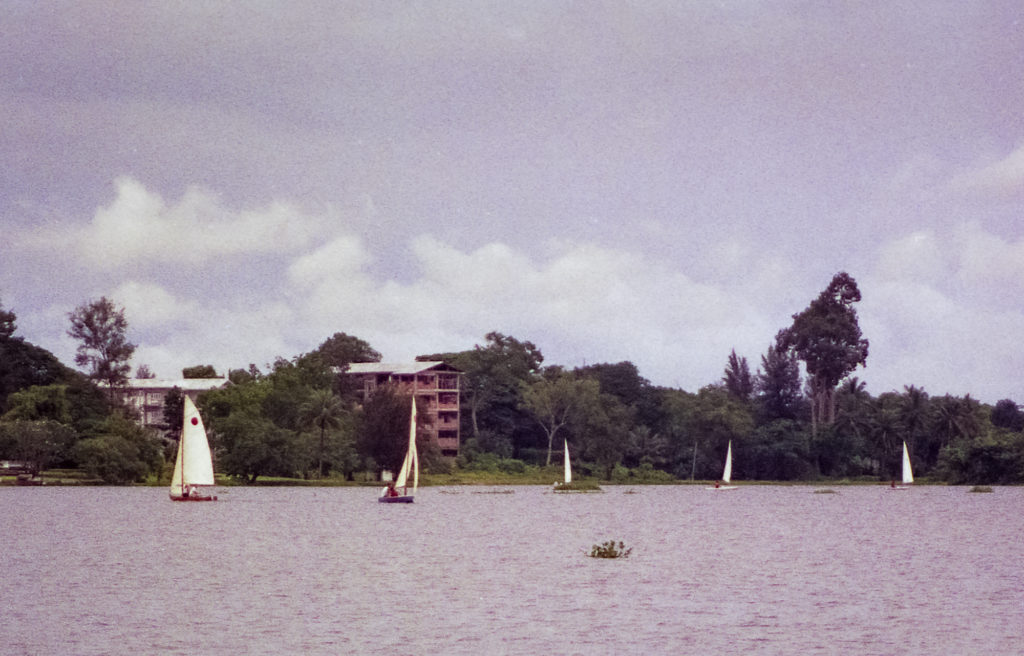We found a curio earlier. A keyring fob that’s been hiding in a suitcase since 1992. I know how long we’ve had it because it comes from my time in Burma, from the Yangon Sailing Club at 132 Inya Road. It was a great place to socialise just a short distance from the university and uncomfortably close to the nearby site of a student slaughter in 1988.

It was in 1989, as if to hide the slaughter, that the junta renamed Burma to Myanmar. While they were at it, they renamed Rangoon as Yangon. I still have trouble calling it Myanmar or referring to Yangon.
So Burma had become Myanmar under a corrupt and isolationist military junta that ruled from 1962 until 2010. Long after my time there, not content to have renamed the capital as Yangon, the military built a brand new capital in Naypyitaw that would be more central and easier to control. Just in case you don’t understand the hubris of dictators, Naypyitaw means ‘abode of the king’.
Back in 1988, the students that were maimed and killed had been participating in a movement calling for democracy. Their perception was that the military was running a failing economy and using brutal restrictions on personal freedoms to quell dissent. There were no jobs to be had without nepotism or favouritism and the people had no rights to anything. It was a brutally repressive and regressive regime operating in a sea of beautiful Buddhist shrines and temples.
A nationwide general strike saw thousands of people take to the streets of Rangoon and other towns around the country on 8-8-88. An auspicious date in a country that believes in fates, nats and all things auspicious, the 8888 rising was followed by continuing unrest. Inevitably, there came a crackdown that is thought to have taken 3000 lives. Education was suspended just in case of further dissent.
And quite a few were killed on the edge of Inya Lake, on the Pyay Road just around the corner from the sailing club where just a couple of years later, I would have enjoyed sun-downers on many a Saturday night. By the time I got to Burma in late 1990, democracy had vented and the vents had been sealed. Aung San Suu Kyi was elected president and so she had been arrested and held under house arrest. The people I worked with wore their fear like their clothes. Everyone worried that everyone else was reporting on them. And democracy remained suspended for another two decades.
The Tatmadaw (military) has been so effective that a 2014 survey of Myanmar public opinion on the military got ‘very favourable’ and ‘favourable’ ratings, outclassing other institutions such as the government and the opposition parties.
Myanmar is probably going to have to change its name again to hide the shame of the Rohingya purges, a displaced people whose only crime seems to have been having Islamic faith. And recently, the President of a predominantly Buddhist nation, Aung San Suu Kyi has been officially denying allegations of genocide. Any human rights advocate, let alone a Nobel and Sakharov laureate, would know that justice delayed is justice denied.
As a good Buddhist might say ‘There has to be evil so that good can prove its purity above it.’

Leave a Reply